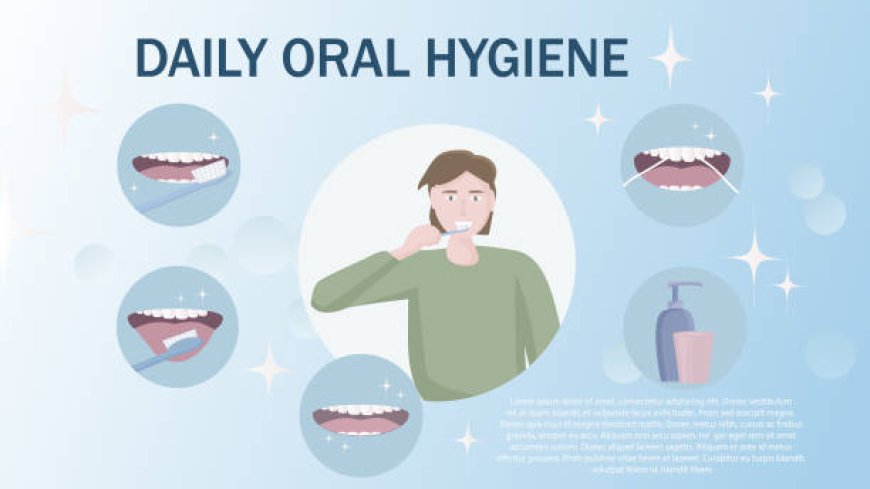The Surprising Connection Between Oral Health and Overall Well-Being

It's easy to think of oral health as something separate from our general health, but studies increasingly show that the two are intricately linked. A healthy mouth might be more than just an avenue to flash a confident smile—it could be an indicator of your overall health. For those considering Dental Insurance Louisiana or merely aiming for a routine check-up, understanding this connection can lead to wiser health choices that impact various aspects of life, from personal confidence to systemic health.
Dental insurance in Louisiana helps residents manage the cost of preventive care, such as cleanings and check-ups, as well as treatments for dental problems like cavities or gum disease. Many plans offer coverage for a variety of services, from basic care to more advanced procedures, ensuring access to necessary treatments without excessive out-of-pocket expenses. With options available for individuals and families, dental insurance in Louisiana can promote overall health by making dental care more affordable and accessible.
The close overlap between oral and general health cannot be overemphasized. Your mouth serves as an early warning system, reflecting the state of your overall health. Yet, many people mistakenly consider oral issues in isolation. This view overlooks the fact that dental health plays a crucial part in your body's well-being. Let's delve deeper into how oral health serves as the foundation of comprehensive health.
The Foundation of Good Health Begins with Your Mouth
Often referred to as the "mirror of health," your mouth offers a window into how well you are generally. It allows you to chew, speak, and show emotional expressions—all of which are central to your daily life. As a gateway for both nutrients and potential pathogens, maintaining oral hygiene becomes imperative. Regular dental care goes beyond just addressing cavities or gum disease; it's an ongoing investment in identifying and circumventing more serious health issues that might start or manifest in the mouth. If you're considering cosmetic options like veneers as part of maintaining your oral health, you might wonder, does dental insurance cover veneers, and understanding this can help you plan your dental care decisions more effectively.
Common Health Issues Linked to Oral Hygiene
It's unsettling yet crucial to recognize that poor oral health is linked with severe systemic conditions such as heart problems, diabetes, and respiratory issues. Studies have shown that health problems related to poor dental hygiene can often be directly correlated to untreated oral infections. For instance, oral bacteria can enter the bloodstream, causing inflammation that exacerbates conditions like endocarditis—a rare but serious heart infection.
Moreover, untreated periodontal disease has been linked to diabetes. High blood sugar levels can trigger more severe gum infections because diabetes can reduce the body's resistance to infection. The back-and-forth interplay between these conditions shows how oral health is much more than just a dental issue—it's a systemic matter.
Demystifying the Mouth-Body Connection
The science behind the mouth-body connection is becoming increasingly evident. The mouth, full of bacteria, both harmless and harmful, acts as a door through which infections can enter and spread. Activities such as eating or brushing teeth can let oral bacteria enter the bloodstream, where they might reach and affect the heart, lungs, or even the skin. Therefore, understanding this dynamic is crucial for adopting preventive health measures.
Consider how periodontitis, a severe gum infection, can increase the risk of kidney disease: when your gums are inflamed, they emit markers associated with inflammation, potentially setting the stage for other diseases. This highlights the systemic nature of what may seem like isolated oral conditions.
Practical Tips for Maintaining a Healthy Mouth
-
Brush twice daily: Spend at least two minutes removing plaque to prevent decay and gum issues.
-
Floss daily: Use floss to remove food particles where your toothbrush can't, such as between the teeth and beneath the gum line.
-
Eat a balanced diet: Choose nutrient-rich foods such as fruits, vegetables, and proteins, as they are vital in maintaining health.
-
Limit sugary snacks: Sugary foods can contribute to tooth decay and should be eaten in moderation to keep cavities at bay.
Adhering to these basic oral hygiene practices sets a strong foundation for oral and general health, decreasing the risk of infections that could affect various body systems.
Regular Dental Visits: More Than a Ritual
Routine dental visits offer more than just cleaning and flossing; they are critical for detecting early signs of systemic health issues. Many diseases show oral symptoms before manifesting more broadly, making dental visits invaluable for early diagnosis. Check-ups often include preventive services that potentially save you from costly and painful procedures later. The benefits of regular dental check-ups also include early screening for conditions like oral cancer, which, when detected earlier, greatly improves treatment success rates.
Moreover, dental professionals often conduct screenings for symptoms of osteoporosis, heart issues, and even dementia. Such preventive healthcare enhances dental hygiene and enriches one's overall health strategy.
Nutrition and Oral Health: A Symbiotic Relationship
Your diet greatly influences your oral health. Foods rich in calcium and phosphorus play an integral role in maintaining the integrity of your teeth, while various antioxidants found in fruits and vegetables help mitigate gum inflammation. Vitamins, including A, C, D, and B complex, form an essential part of your dental defense mechanism, aiding in reducing oral infections and promoting healing.
The Psychological Benefits of a Healthy Smile
The effect of a healthy smile goes beyond physical health; it significantly contributes to mental well-being. Boosting self-esteem, enhancing social interactions, and elevating your mood are just some of the psychological benefits. When people feel confident about their smile, they are more willing to socialize, express themselves, and enjoy life, leading to improved mental health.







